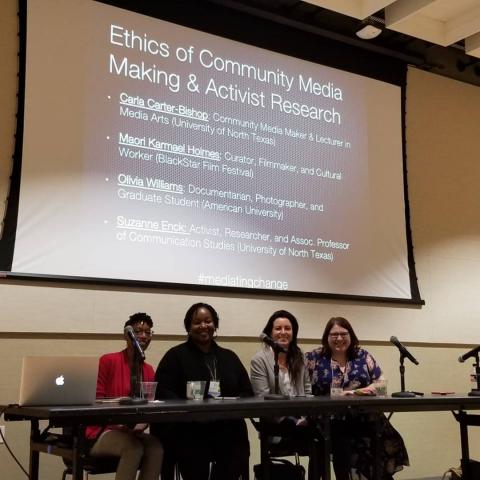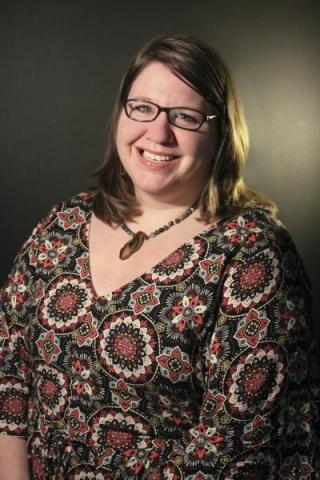Q&A with Dr. Suzanne Enck
February 12, 2019


- Dr. Enck, can you tell us how have you been involved on campus with various activist
efforts?
- In the fall, I helped coordinate the on-campus conference, Mediating Change, which brought together people from over 25 different universities and non-profit groups to explore opportunities for engaging in activism, human rights, and creative projects. I was one of four people who spoke on the Plenary session about ethics and activism-based research. I also co-facilitated a four-hour Green Dot workshop [on January 7, 2019] for returning Resident Assistants here at UNT. Green Dot is a bystander intervention program, aimed at decreasing opportunities for power-based interpersonal violence.
- Great, can you tell us about your recent research publications?
- I had two different forum articles published near the end of the fall semester, both related to the "Me Too" movement (one in Women's Studies in Communication and one in QED: A Journal in GLBTQ Worldmaking). Also, I just co-published an article in Death Studies with another professor from Winthrop University -- it's the first of what will hopefully be articles looking at how people manage grief through social media spaces (e.g., Facebook). While this study was outside of my usual comfort zone, I'm excited for us to be able to develop more work on the narratives people employ in using social media platforms to navigate grief.
- How are you representing the UNT Department of Communication Studies at the National
Communication Association (NCA)?
- At the NCA Convention in November, I was responsible for coordinating the conference planning for the Feminist & Women Studies Division including assignment of reviewers for 110 individual papers and 26 panels. In all, I coordinated nearly 150 volunteers for the division, making sure that each paper or panel was reviewed by at least three different people at different levels in their academic careers.
- Finally, how do you plan to spend your time during your sabbatical?
- I'm working on my book manuscript, tentatively titled Storying Carceral Survival: Exploring Women's Pathways to Incarceration, for which I am analyzing life history interviews I conducted with 36 incarcerated (or formerly incarcerated) women.